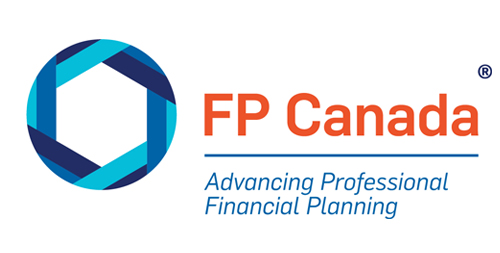Taxation of Investments Owned by United States Persons
KNOWLEDGE EXPECTED OF: CFP® Professionals
Highest Knowledge Level: Understanding
Knowledge Levels and Associated Verbs
|
Awareness
The state of being aware that something exists / to have familiarity with a particular activity or subject
|
Understanding
To comprehend the general relationship of particulars / to have an expertise with how something works
|
Application
Ability to put information to use / to use knowledge for relevant, practical purposes
|
Evaluation
To judge or conclude by utilizing data / a systematic determination of something’s worth or significance
|
||||||
|---|---|---|---|---|---|---|---|---|---|
|
Define
To state exactly the meaning of
|
Identify
To be aware of / to recognize and correctly name / to locate an appropriate resource
|
Explain
To make clear the meaning of / to describe something in more detail or reveal relevant facts or ideas related to it
|
Determine
To ascertain / to come to a decision, such as by investigation or reasoning
|
Compare
To note the similarities and differences between two or more things
|
Estimate
To determine an approximate value for
|
Calculate
To find the value using mathematics
|
Convert
To change from one form or purpose to another
|
Evaluate
To reach a conclusion or make a through careful study
|
Interpret
To give the meaning of / to construe or understand / to translate orally
|
Hold cursor over or click on each term to read its definition.
Additional Knowledge Expected of CFP Professionals
Taxation of Investments Owned by United States Persons
- Identify types of accounts that a United States Person may have to report under the Report of Foreign Bank and Financial Accounts (FBAR), such as:
- Personal financial accounts which they own or for which they have signing authority
- Commercial financial accounts at a business for which they may have ownership or signing authority
- Trusts for which they have signing authority
- Estates for which they have signing authority
- Define types of foreign corporations denoted under the Internal Revenue Code of the United States, such as:
- Controlled Foreign Corporations (CFC)1
- Passive Foreign Income Company (PFIC)2
- Identify that any United States Person who as a shareholder owns greater than 10% of the stock in a Controlled Foreign Corporation (CFC) must report and include a share of the income of the corporation in their personal income.
- Identify accounts where a United States person may be responsible for reporting the ownership of a passive foreign income company, such as:
- Non-Registered
- Registered Education Savings Plan
- Tax-Free Savings Account
- Identify types of investments that may be considered a Passive Foreign Income Company, such as:
- Canadian mutual funds
- Canadian exchange traded funds (ETF)
- Canadian income trusts
- Canadian pooled funds
- Identify when a United States Person may be exempted from reporting ownership of a passive foreign income company (PFIC), such as:
- No distributions from the passive foreign income corporation (PFIC) occurred during the year
- No dispositions of the passive foreign income corporation (PFIC) occurred during the year
- Year-end value of all passive foreign income corporations (PFICs) held is less than $25,000
- The passive foreign income corporation (PFIC) is held in a registered pension plan, Registered Retirement Savings Plan or Registered Retirement Income Fund
- Identify that there may be tax implications when holding passive foreign income corporations (PFIC).
- Explain the tax treatment applied to a passive foreign income corporation (PFIC) owned by a United States Person who fails to report and file an election for the passive foreign income corporation (PFIC) they own, such as:
- Any gains upon disposition or distributions received from the passive foreign income corporation (PFIC) during the year greater than 125% of the average distributions received during the previous three years will be taxed as ordinary income (i.e., back to the commencement of ownership of the passive foreign income corporation (PFIC))
- Amounts allocated to prior years will be taxed at highest marginal tax rate and subject to interest
- Identify that the passive foreign income corporation (PFIC) rules do not apply in the first year of owning the PFIC.
- Identify that there may be additional U.S. tax impacts for an individual with a business interest in a private Canadian corporation.
- Identify factors that an individual should consider before renouncing their citizenship to avoid the reporting and tax requirements of a United States person, such as:
- Legal and tax filing
- Tax filing requirements
- Expatriation tax
- Administrative costs
- Loss of access to enter United States
- Loss of ability to work in United States
- Loss of potential benefits to current or future children of being U.S. person
- Loss of voting privileges in United States
- Amount of potential current and future tax being saved
Investing in Canadian Registered Plans by United States Persons
- Explain how registered retirement savings plans owned by United States persons are treated by the Internal Revenue Service, such as:
- Deductibility of contributions
- Growth of assets while assets remain in plan
- Income earned within plan
- Withdrawals from plan
- Identify the impact of employer contributions to a Registered Pension Plan (RPP) or Deferred Profit-Sharing Plan (DPSP) for United States persons residing in Canada when completing their United States tax return.
- Non-deductibility of contribution amount
- Contribution taxable when vested
- Excluded from foreign earned income exclusion
- Foreign tax carryover credit may be applicable



 previous / United States Persons
previous / United States Persons